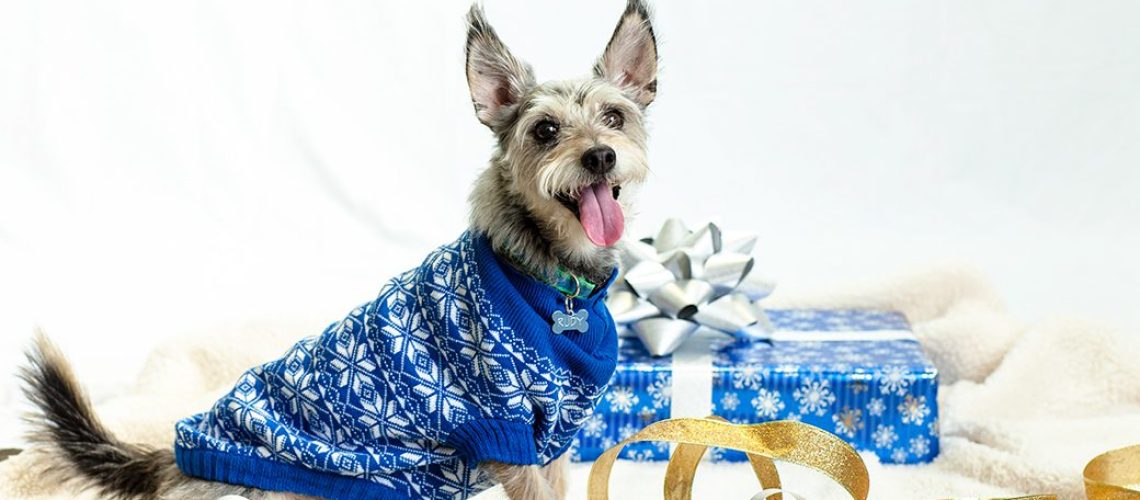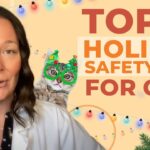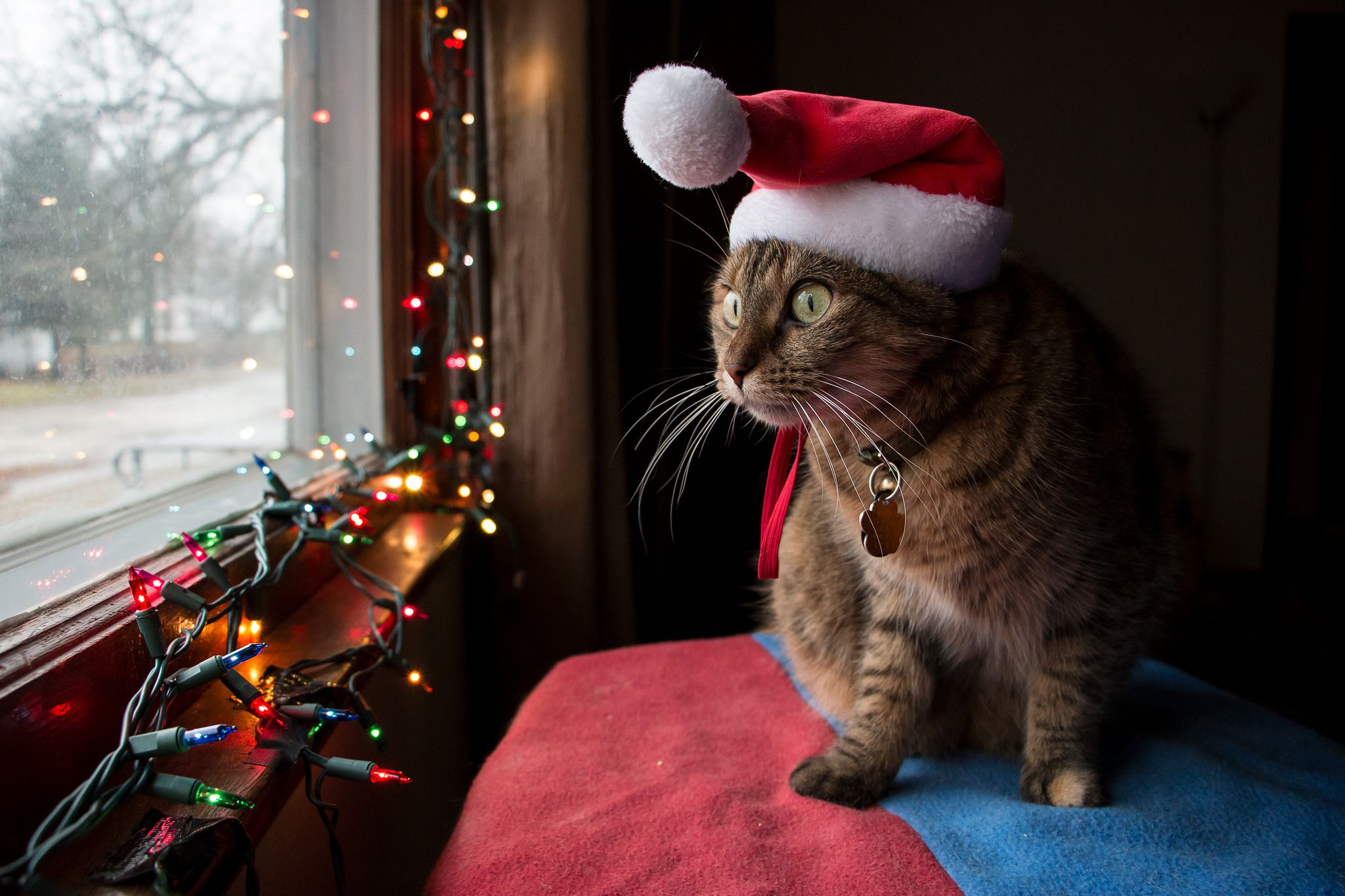Are you excited for the upcoming holidays? The festive season is a time of joy and celebration, but it can also bring hidden dangers for our furry friends. As pet owners, it's crucial to be aware of the potential health scares that can arise during this time. By understanding how to care for your pet during the holidays, you can ensure their safety and well-being. In this article, we will explore the value of holiday pet health and provide practical tips to keep your four-legged companion happy and healthy throughout the season. So let's dive in and discover how you can protect your beloved pet from holiday hazards!
Key Takeaways:
- Keep holiday decorations out of reach from your pet to prevent them from being chewed on or swallowed.
- Avoid feeding your pet table scraps, as many holiday foods can be toxic or cause digestive issues.
- Be cautious with candles and open flames, as pets can easily knock them over and start a fire.
- Ensure that your pet has a safe and quiet space to retreat to during holiday gatherings, as the noise and activity can be overwhelming for them.
- If you suspect your pet has ingested something harmful or is showing signs of illness, contact your veterinarian immediately.
Common Holiday Health Scares for Pets
Holidays can be a fun and exciting time for everyone, including our furry friends. However, there are certain health risks that pets may face during this festive season. One common holiday health scare for pets is the consumption of harmful foods. Many holiday treats contain ingredients like chocolate, onions, and grapes, which can be toxic to dogs and cats. It's important to keep these foods out of reach and ensure that your pets don't accidentally ingest them.
Another health concern during the holidays is the presence of decorations and plants that can be dangerous for pets. Some plants commonly used for decoration, such as poinsettias and mistletoe, can be toxic if ingested by animals. Additionally, ornaments and tinsel on Christmas trees can pose a choking hazard if your pet decides to play with them.
The Importance of Being Aware of Holiday Health Risks
As pet owners, it is crucial to be aware of potential health dangers that our pets may face during the holidays. By being informed about these risks, we can take proactive measures to prevent any harm to our beloved companions. It's essential to remember that prevention is always better than cure when it comes to our pets' well-being.
Being aware of holiday health risks allows us to create a safe environment for our pets and avoid unnecessary trips to the veterinarian or emergency clinic. By taking precautions such as keeping harmful foods out of reach, securing decorations properly, and providing a quiet space for our pets during gatherings, we can ensure their safety and enjoy a worry-free holiday season together.
Keeping Your Pet Safe from Harmful Foods at Holiday Celebrations
I know how tempting it can be to share some delicious holiday food with your furry friend, but it's important to remember that certain foods can be harmful or even deadly for pets. Some common holiday foods that should be avoided for pets include:
- Chocolate: Chocolate contains theobromine, which is toxic to dogs and cats. Even small amounts can cause symptoms like vomiting, diarrhea, and increased heart rate.
- Onions and Garlic: These ingredients can cause damage to your pet's red blood cells, leading to anemia. It's best to avoid giving them any dishes that contain onions or garlic.
- Grapes and Raisins: Grapes and raisins can cause kidney failure in dogs. Keep these out of reach at all times.
If you want to treat your pet during the holidays, there are plenty of safe options available. Look for pet-friendly treats or consult with your veterinarian for recommendations. Remember, it's better to be safe than sorry when it comes to your pet's health!
Common Holiday Health Scares for Pets
The holiday season is a time of joy and celebration, but it can also bring some health risks for our furry friends. One common health scare for pets during the holidays is accidental ingestion of harmful foods. Many festive foods that we enjoy can be toxic to pets, such as chocolate, grapes, onions, and alcohol. These foods can cause symptoms like vomiting, diarrhea, and even more serious complications.
Another common holiday health scare for pets is exposure to dangerous decorations and plants. Some popular holiday plants like poinsettias, mistletoe, and holly can be toxic if ingested by pets. Decorations like tinsel and ornaments can also pose a risk if swallowed or chewed on by curious pets.
Preventing Accidental Ingestion of Harmful Foods
To keep your pet safe from accidental ingestion of harmful foods during holiday celebrations, it's important to be mindful of what you're serving and where you're placing food. Keep all festive treats out of reach from your pet and make sure guests are aware not to share any food with them. If you suspect your pet has consumed something toxic, contact your veterinarian immediately.
Avoiding Dangerous Decorations and Plants
To prevent your pet from getting into trouble with decorations and plants, consider using pet-friendly alternatives or keeping them out of reach altogether. Opt for artificial plants instead of real ones that may be toxic to pets. Secure decorations properly so they cannot be easily knocked over or chewed on by your furry friend.
The Importance of Being Aware of Holiday Health Risks
Being aware of holiday health risks for our pets is crucial in ensuring their well-being during this festive season. By understanding the potential dangers that lurk around, we can take proactive measures to keep our furry friends safe and healthy.
One of the main reasons why it's important to be aware of holiday health risks is that prevention is always better than cure. By taking precautions and avoiding potential hazards, we can save our pets from unnecessary suffering and costly veterinary bills.
Protecting Your Pet's Digestive System
The digestive system of our pets is sensitive, and certain foods that are harmless to us can be toxic to them. It's essential to educate ourselves about the foods that are dangerous for our pets and ensure they don't have access to them during holiday celebrations. This includes avoiding giving them table scraps or leaving food unattended where they can reach it.
Maintaining a Stress-Free Environment
Holiday gatherings can be overwhelming for our pets due to increased noise, unfamiliar faces, and changes in routine. It's important to create a pet-friendly environment where they feel comfortable and secure. Providing a quiet space away from the festivities, ensuring they have their familiar toys and bedding, and sticking to their regular feeding schedule can help reduce stress levels.
Keeping Your Pet Safe from Harmful Foods at Holiday Celebrations
During holiday celebrations, it's tempting to share delicious treats with our pets as a way of including them in the festivities. However, many common holiday foods can actually be harmful or even toxic to our furry friends.
One food that poses a significant risk is chocolate. Chocolate contains theobromine, which is toxic to dogs and cats. Even small amounts of chocolate can cause symptoms like vomiting, diarrhea, rapid breathing, increased heart rate, and in severe cases, seizures or even death.
Pet-Friendly Treats for Holiday Celebrations
If you want to include your pet in the holiday celebrations, there are plenty of safe and delicious options. Consider giving them small pieces of cooked turkey or chicken without any seasoning. You can also offer them pet-friendly treats specifically made for their dietary needs. Just make sure to avoid foods that are high in fat, sugar, or artificial sweeteners.
Keeping Food Out of Reach
To prevent your pet from accidentally ingesting harmful foods, it's important to keep all food out of their reach. This includes securely covering trash cans and keeping countertops clear of any food items. Remind guests not to share their plates with your pets and ensure everyone is aware of the potential dangers certain foods can pose to animals.
Signs Your Pet May be Experiencing a Health Scare During the Holidays
During the holiday season, it's essential to pay close attention to our pets' behavior and watch for any signs that may indicate they are experiencing a health scare. Recognizing these signs early on can help us take prompt action and prevent further complications.
One common sign that something may be wrong is changes in appetite or water intake. If your pet suddenly loses interest in food or water, it could be a sign of an underlying health issue. Other signs to look out for include vomiting, diarrhea, excessive drooling, lethargy, difficulty breathing, or unusual behavior.
The Importance of Regular Vet Check-ups
To ensure your pet's overall health and well-being during the holidays, it's crucial to schedule regular check-ups with your veterinarian. Regular vet visits allow for early detection of any potential health problems and provide an opportunity for preventive care measures such as vaccinations or parasite control.
Seeking Veterinary Care Promptly
If you notice any concerning symptoms in your pet during the holidays, it's important to seek veterinary care promptly. Delaying treatment can worsen their condition and potentially lead to more severe health issues. Contact your veterinarian for guidance and follow their advice on whether immediate medical attention is necessary.
Dangerous Decorations and Plants for Pets During the Holidays
While decorations and plants add a festive touch to our homes during the holidays, some of them can pose serious risks to our pets. It's important to be aware of these dangers and take precautions to keep our furry friends safe.
One common decoration that can be hazardous is tinsel. Cats, in particular, are attracted to its shiny appearance and may try to play with or ingest it. Swallowing tinsel can lead to intestinal blockages, which require immediate veterinary intervention.
Pet-Safe Alternatives for Decorations
To avoid potential hazards, consider using pet-safe alternatives for decorations. Opt for non-toxic ornaments made from materials like fabric or wood instead of fragile glass ones. Choose artificial plants or those that are known to be safe if you have curious pets who might nibble on them.
Keeping Decorations Securely in Place
To prevent accidents or injuries caused by decorations, make sure they are securely placed and cannot be easily knocked over or pulled down by your pets. Avoid hanging ornaments low enough for your pet to reach and keep electrical cords out of their reach as well.
Creating a Pet-Friendly Environment for Holiday Gatherings
Holiday gatherings often involve increased foot traffic, loud noises, and unfamiliar faces, which can be overwhelming for our pets. Creating a pet-friendly environment during these events is essential to ensure their comfort and well-being.
One way to create a pet-friendly environment is by designating a quiet space where your pet can retreat to when they need a break from the festivities. This could be a separate room or a cozy corner with their bed, toys, and water bowl.
Informing Guests About Pet Etiquette
When hosting holiday gatherings, it's important to inform your guests about proper pet etiquette. Let them know if your pet has any specific needs or sensitivities and ask them to respect boundaries. Advise guests not to feed your pets any food without your permission and remind them to close doors securely to prevent any accidental escapes.
Sticking to Routine
Pets thrive on routine, and sudden changes in their schedule can cause stress and anxiety. During holiday gatherings, try to stick as closely as possible to your pet's regular routine for feeding, exercise, and sleep. This will help them feel more secure and minimize any disruptions that may affect their well-being.
Steps to Take if Your Pet Accidentally Ingests Something Harmful During the Holidays
If you suspect that your pet has accidentally ingested something harmful during the holidays, it's crucial to take immediate action. Acting promptly can make a significant difference in preventing further complications or even saving your pet's life.
The first step is to assess the situation calmly. If you know what your pet has ingested, gather any relevant information such as the quantity consumed and the time of ingestion. This will be helpful when speaking with a veterinarian.
Contacting Your Veterinarian
Once you have assessed the situation, contact your veterinarian immediately for guidance. They will provide specific instructions based on the substance ingested and the symptoms exhibited by your pet. Follow their advice carefully and be prepared to bring your pet in for an examination if necessary.
Do Not Induce Vomiting Without Veterinary Guidance
While inducing vomiting may be appropriate in some cases, it should only be done under the guidance of a veterinarian. Certain substances can cause more harm if vomited back up, so it's important to follow professional advice rather than attempting to induce vomiting on your own.
Remember, the health and well-being of our pets should always be a top priority. By being aware of potential holiday health scares and taking proactive measures to prevent them, we can ensure that our furry friends stay safe and healthy throughout the festive season.
In conclusion, it is important to prioritize the health and safety of our pets during the holidays. By being aware of potential dangers and taking necessary precautions, we can ensure that our furry friends stay happy and healthy throughout the festive season.
What are holiday hazards for your pet?
If your pet ingests flowers or festive plants, it may require an emergency trip to the vet. Common holiday plants such as amaryllis, mistletoe, balsam, pine, cedar, holly, and even poinsettias can be hazardous and toxic to pets if they decide to eat them.
Do dogs miss their owners when they go on holiday?
When you go on vacation, it is natural for your dog to feel a sense of longing for you. Dogs are unique pets because they are capable of experiencing love similar to humans. They also have a protective instinct towards their owners, and their anxiety can increase when you are not present as their sense of purpose diminishes.
What are the tips for pet owners during holidays?
If you are hosting guests and your pet is easily excited or frightened, make sure to provide a secure place for them to retreat to, such as a kennel, crate, perch, scratching post shelf, or hiding spot. Alternatively, you can consider placing your pet in a separate room with toys and a cozy bed.
Are holidays stressful for dogs?
Whether you're at home or on the go, holiday get-togethers can be overwhelming and stressful for dogs. Dogs and puppies can easily be distracted by tempting holiday food and it's important to provide them with a quiet space to retreat to.
Should I say goodbye to my dog when I leave?
However, scientific research suggests that ignoring your dog can actually be detrimental. A study published in the Journal of Veterinary Behavior in 2018 found that petting your dog in a gentle manner before leaving for work can help reduce their anxiety. This demonstrates that human contact can be effective in lowering a dog's stress levels.
How do dogs feel when you leave them for a week?
Separation-induced anxiety is a real issue for dogs and can have a significant impact on their well-being. When you are away, your dog may experience a period of grieving which can vary in duration from a few days to a few weeks.

















